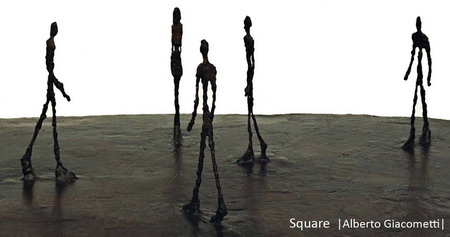[Re] appropriation of the city
Architecture as a tool for the re-appropriation of the contemporary city
Important dates:
March 1st - call for abstracts
April 30th - deadline for abstract submission
May 20th - abstract acceptance confirmation
June 15th - deadline for conference registration
July 22th - full paper submission
August 15th - revision of papers by Sc. Committee
September 1st - revised paper submission
October 9-12th - conference
1. Introduction
POLIS University launches the 1st international conference of architecture TAWC_01, as one of the key events of the Tirana Architecture Week. TAWC_01 shall take place in Tirana, from October 09 to 12, at the premises of the POLIS University. The theme of the TAWC_01 is “Re-appropriating the city: Architecture as a tool for the re-appropriation of the contemporary city”. Balkan cities are at the focus of the conference’s theme, looking forward to identify their position in the international platform of city performances.
Balkan cities have various unique experiences of space appropriation. Alike culture, space is also vivid and human and it is continuously transformed through a mutual process of human – space interaction. The space for all, the one we name as public, evolves in its interaction with several users. The users are the people, but from an ecological point of few, this could include other species, thus increasing the complexity of space appropriation. All in all, this would be a healthy space appropriation.
In Balkan cities, we have been witnessing plenty of devastating intrusions to the public space, made by privileged groups that just “grabbed the opportunity” in a given political and social economic setting. These intrusions have undermined the human-space healthy balances, by resulting in space capture. The latter has been extremely severe in the Balkan context of shifting from dictatorial to democratic societies, where the concept “space for all” was evilly manipulated into “space for my business”. This “laissez faire” psychology was justified with the “need for transition to real capitalism”, endorsement of consumerist ideologies and quick removal of legacies of the past, including fractions of social responsibility. Thus, the one that used to be the space for all was taken over for personal, narrow and selfish interests of the strongest, or the fittest.
Having recognized that, we also observe not to be free as yet of these unhealthy takings that often stand behind the well known business. Thus, we identify a need for getting space back to the public and also maintaining the healthy interactions. In our Balkan context, space appropriation has to enter a “[re]” phase, which encompasses processes of [re]claiming, [re]evaluating, [re]arranging, [re]using, [re]building, [re]shaping, [re]modelling, and at last [re]understanding and [re]developing space as a place of all. Re-appropriation of space in the city stands for a known method, but reversed model, fed into daily practices.
The aim of the TAWC_01 is to support a fertile debate on city/public space re-appropriation. The debate should disclose reasons behind the facts and bring innovative knowledge and tools for achieving re-appropriation. Professionals, academics, students and a broad public could participate and try to define, conceptually and physically public spaces, as a fundamental element in re-appropriating the contemporary city.
Architects, urban planners, designers, experts in sustainability issues and space psychology are invited to share their experiences, their knowledge and inspiration, cases from world cities and other useful insights. The contributions would at last provide a solid basis for Balkan cities in the endeavour towards sound and healthy re-appropriation.
2. Sub-themes and Dimensions
The scope of TAWC_01 is distinct, yet all-inclusive. The participants are kindly invited to make their contributions within a matrix of 6 sub-themes and 4 dimensions.
Sub-theme 1: From missing links to connected city
It could be called also “the mixing city”. What are the networks that can reconnect all of the parts in city? How can this reconnection occur? How to reuse forgotten, or abandoned places? How to be efficient in using land/space, yet be creative? How to bring back or keep safe the value of the mix in the use of the space? Etc.
Sub-theme 2: The Inclusive city
How to design or redesign a space for all, a space that respects gender, age, abilities and needs? How to afford this design or redesign process and its implementation? How to inclusively benefit from it?
Sub-theme 3: The living building
The building or the structure, as the element that shapes space or is defined by the space, is the focus. How can sustainable, green buildings and eco design be used to re-appropriate the space? Is there any room for daring towards new paradigms?
Sub-theme 4: The “Ergonomic” city
This is the city/space that intelligently fits its people and all other species, in an evolutionary context and fashion. Do the people [re]appropriate the city/space to their needs, or the city [re]absorbs people’s habits and needs and [re]appropriates people?
Sub-theme 5: My city
The city is the result of the psychological and physical interaction of humans with space and species. What are the social and spiritual links between peoples and the space/city. Is one the result of the other? What is the causal relationship?
Sub-theme 6: The Spontaneous city
Inspiration, creativity and spontaneity are the driving forces of development in any values systems. Can spontaneous or informal space developments bring us higher in the values systems? How can we use the spontaneous or organic developments to reveal the solution in space [re]appropriation?
Scientific Committee:
POLIS University: Dr. Besnik Aliaj, Dr. Loris Rossi, Dr. Antonino Di Raimo, Dr. Vera Bushati, Dr. Arber Shtylla
Università “ La Sapienza” Roma: Prof. Antonino Saggio
Università Ferrara: Prof. Antonello Stella
ANHALT University of Applied Science: Prof. Stephan Pinkau
Technical University of Vienna: Prof. Marcus Tomaselli
Cottbus University: Prof. Raimund Fein
Erasmus University of Rotterdam: Prof. Peter Niented
University of Belgrade: Prof. Vladan Djokic





